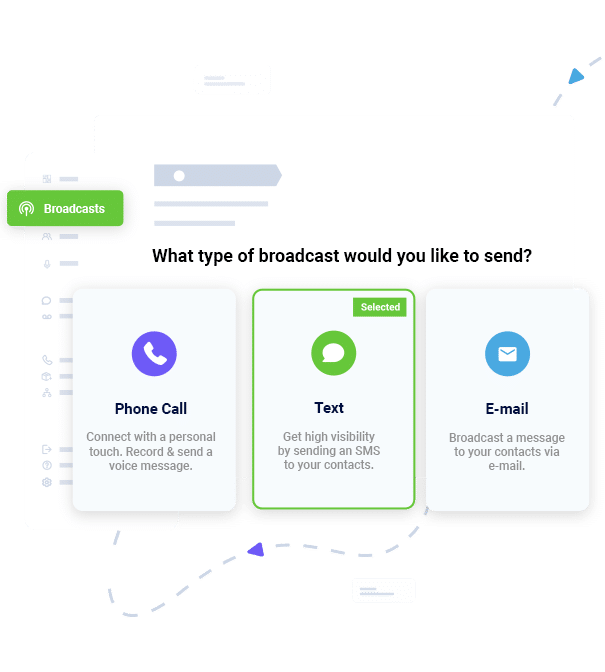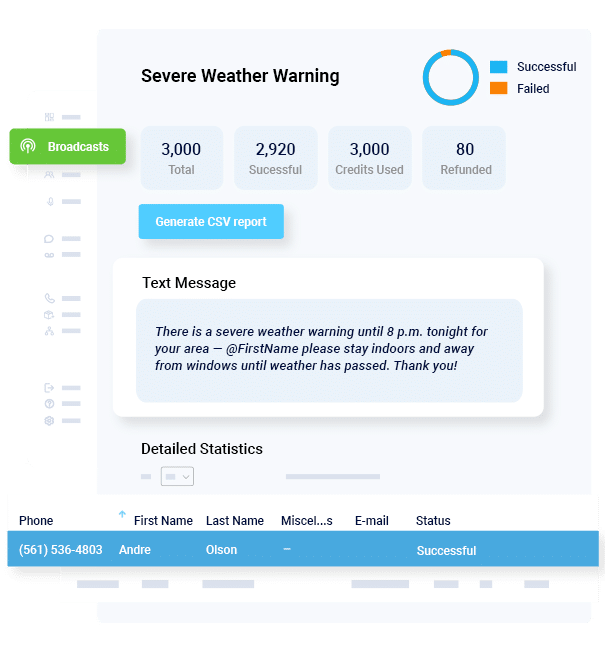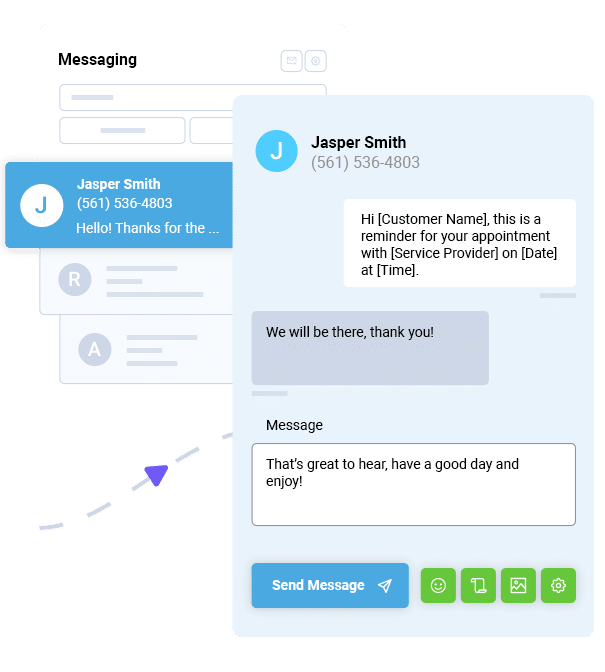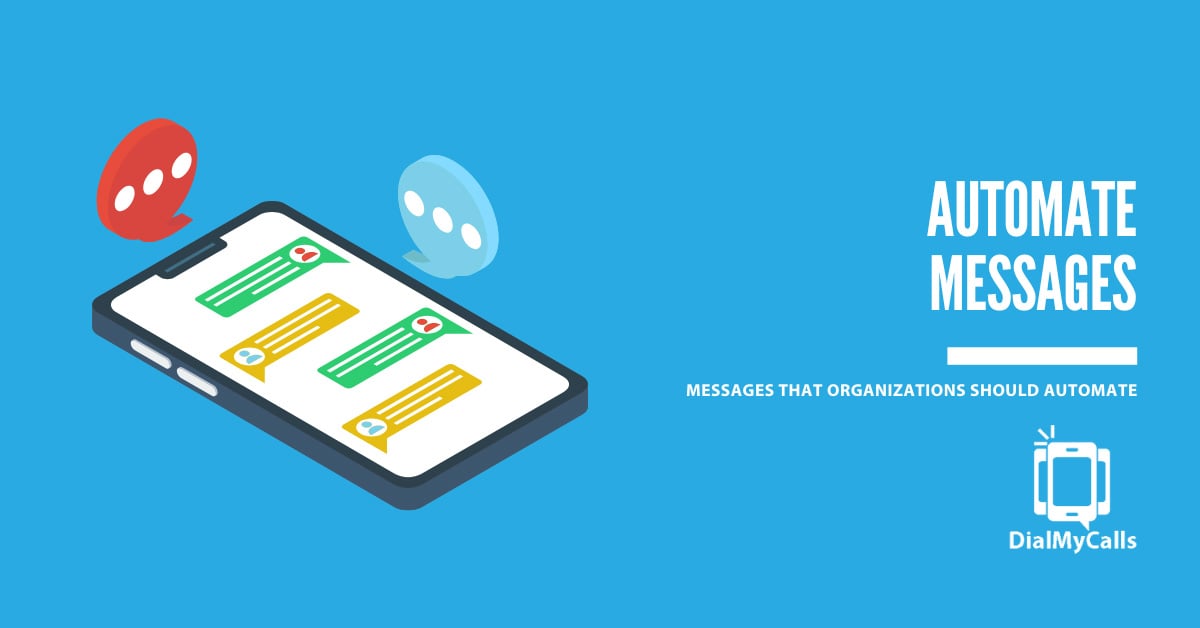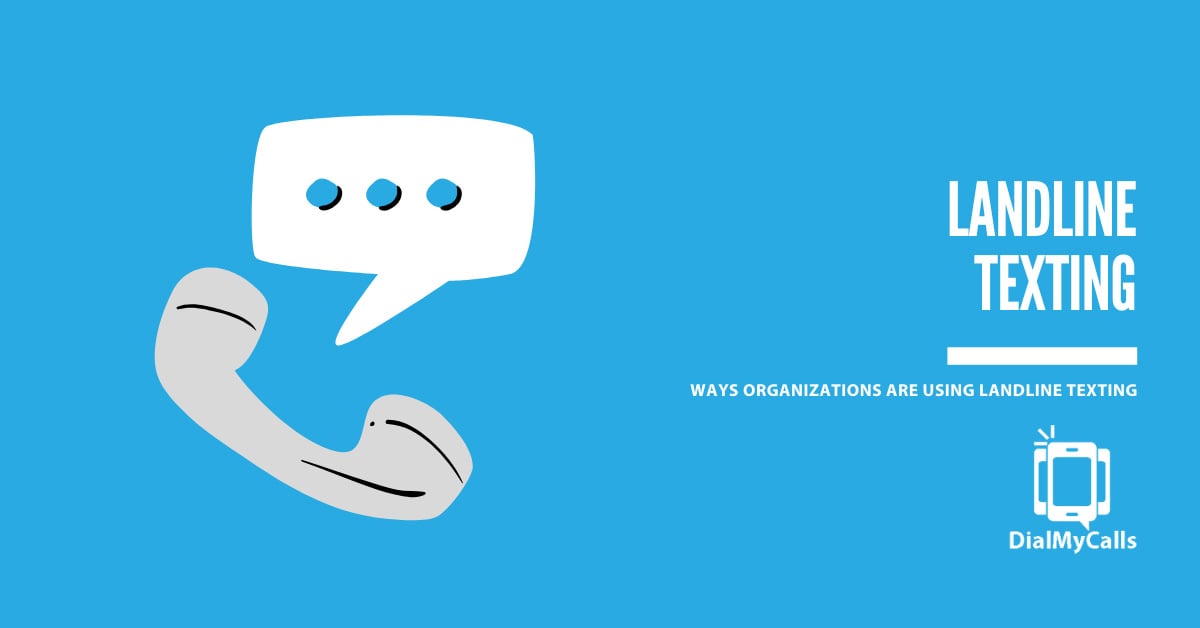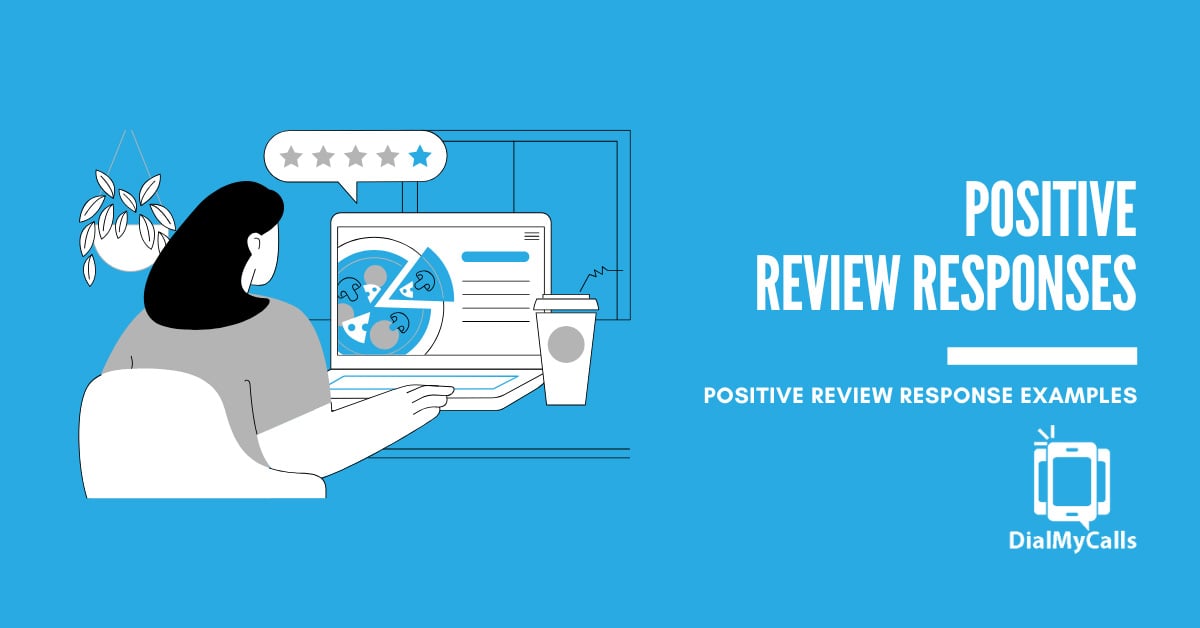How SMS Communication Is Transforming Patient Care in Healthcare Settings
Posted by Tim Smith in Business Continuity on May 9, 2025
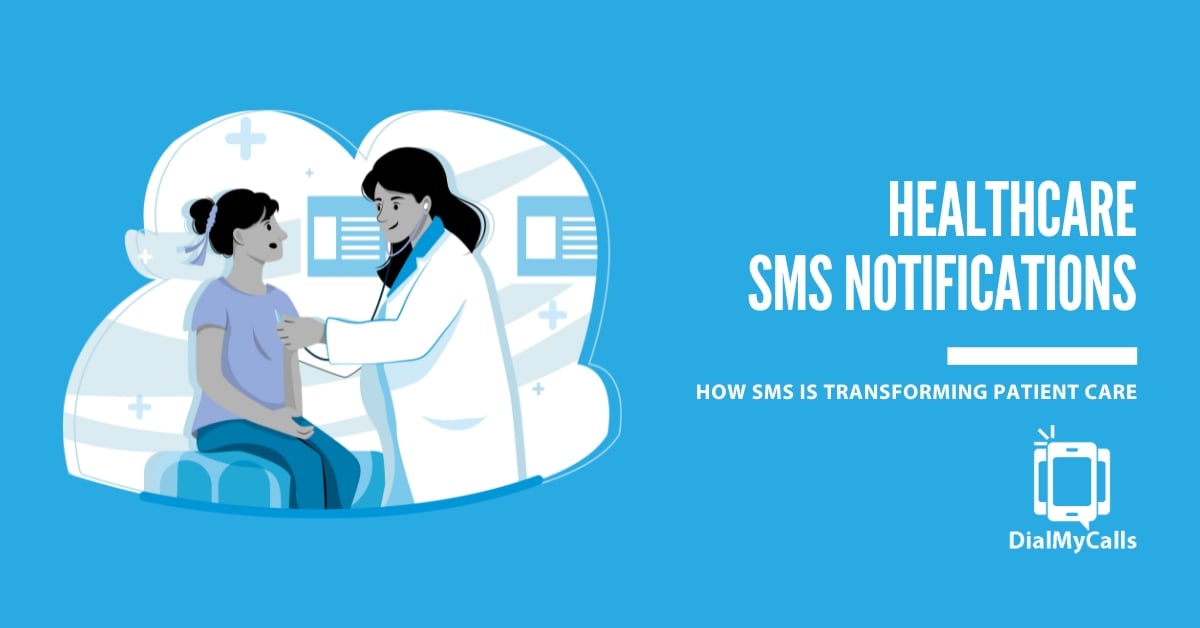
Healthcare is a complex, high-stakes environment. However, that doesn’t mean the most effective tools are equally complex. Sometimes, the simplest tools can make the biggest difference. Case in point: the humble text message.
For decades, healthcare professionals have relied on a patchwork of communication tools, like phone calls, voicemails, letters, and patient portals. While each serves a purpose, few match the immediacy and clarity of a well-timed SMS message.
After all, text messages go right to the patient’s device (Gallup points out that 80% of US adults keep their phones on or near them at all times). Text messages arrive almost instantly and there’s no barrier to entry (the patient doesn’t need to log into a portal or take any steps they normally wouldn’t).
With over 6.6 billion smartphone users worldwide and text messages boasting an open rate of over 98%, it’s no wonder SMS is now part of a growing number of patient communication strategies.
And here’s the thing: this isn’t just about convenience. It’s about improving patient outcomes, streamlining operations, and building the kind of trust that keeps people coming back to your practice. The goal, as always, is better outcomes for patients while making it easier for healthcare professionals to do their jobs well.
Maximize Outreach, Save Time
Start Transforming Your Communication with Mass Texting
Why Communication Is Critical in Healthcare
If you’re managing a healthcare facility, you already know that communication gaps can lead to missed appointments, medication errors, and patient dissatisfaction. Poor communication is one of the leading causes of medical errors, which account for hundreds of thousands of preventable deaths in the U.S. each year.
But it’s not just life-or-death emergencies where communication matters.
It’s the parent who doesn’t know if their child should fast before surgery. It’s the patient who forgets to take their antibiotics. It’s the elderly woman who misses her follow-up visit because the reminder was buried in an email inbox she rarely checks.
These seemingly small failures in communication add up. They cost time, money, and, most importantly, trust.
The Rise of SMS Communication in Healthcare
Let’s look at why texting is proving to be such a must-have technology for so many medical practitioners and facilities.
Open Rate of SMS Messages
Over 98%, compared to roughly 20% for emails.
Read Rate
Most texts are read within 3 minutes.
Accessibility
SMS doesn’t require apps, logins, or Internet access, just a phone, which is good news for those in geographic areas that don’t have great 5G coverage.
Patient Preference
A recent study by Twilio found that 89% of patients want to receive text messages from their healthcare providers.
From busy professionals to seniors managing chronic illnesses, people appreciate the ease and directness of a text message. It feels human. It’s fast. And it meets patients where they are.
Six Key Ways SMS Is Transforming Patient Care
- Appointment Reminders
- Medication Adherence
- Pre and Post-Visit Instructions
- Emergency Alerts
- Patient Satisfaction Surveys
- Two-Way Communication
Not sure how SMS might work within your practice or facility? Let’s walk through the most impactful uses of SMS in real healthcare settings.
Appointment Reminders
Missed appointments cost the U.S. healthcare system billions every year. For individual practices, each no-show can mean a lost opportunity to provide care and a hit to your bottom line. Chances are good that it’s such a big problem that your practice has started charging no-show fees to patients who don’t make their appointments.
With SMS appointment reminders, you can:
- Reduce no-show rates by up to 26% (according to a study published in BMC Ophthalmology)
- Offer easy rescheduling options
- Free up staff time spent making reminder calls
And because reminders can be automated, you’re doing more than just saving time. You’re scaling your communication sustainably without adding anything massive to your technology stack.
Medication Adherence
Medication nonadherence is a silent crisis. Roughly 50% of patients don’t take their medications as prescribed, leading to more hospitalizations and worse health outcomes. This makes sense because if patients are taking their medications too late, taking too much or too little, or not taking them at all, it won’t work the way it’s supposed to.
With SMS, you can send:
- Daily or weekly pill reminders
- Refill alerts
- Encouragement for patients with chronic conditions
Imagine a diabetes patient getting a gentle nudge each morning to take insulin or check blood sugar levels. That small act of engagement can lead to better compliance and fewer complications.
Pre and Post-Visit Instructions
Let’s face it, patients are often overwhelmed during appointments. There’s just so much coming at them at one time. Important care instructions can get lost in the shuffle.
By texting those instructions after a visit, you give patients:
- Easy access to follow-up care tips
- Reminders to avoid certain foods, take antibiotics or rest
- Confidence that they’re not on their own after leaving your office
You also reduce the number of calls your staff has to field from confused or worried patients, which helps them do their jobs better and provide a higher level of care to other patients.
Emergency Alerts
During COVID-19, SMS proved pretty important for sending:
- Testing updates
- Temporary closures
- Telehealth transition instructions
- Exposure notifications
We don’t face a pandemic today, but the same infrastructure can be used for localized outbreaks, weather emergencies, or internal alerts for staff. SMS is the fastest way to get the word out, especially when time is critical.
Patient Satisfaction Surveys
How do you know if your patients are happy with the care they receive? In the past, that meant sending handwritten surveys, email surveys, questionnaires, social media polls, and more, all of which were problematic.
Email surveys often get ignored, and phone calls can feel intrusive. But a short text-based survey, something like, “How was your visit today? Reply with a 1–5”, can give you fast, honest feedback.
Of course, feedback is only valuable if you do something with it. Over time, these insights help you:
- Improve patient experience
- Identify service gaps
- Improved marketing (reduced costs, better engagement, etc.)
- Demonstrate quality metrics for accreditation and insurance providers
Two-Way Communication
Sometimes, patients just have a quick question, like “Can I eat before my MRI?”, “What time is my appointment again?”, or “Do I need to fast for this blood test?”.
In the past, answering even the simplest question usually meant calling the office, sitting on hold for an interminable amount of time, and taking up valuable staff time that could be better spent serving other patients.
With secure two-way SMS, patients can get those answers without clogging up phone lines or navigating a complicated portal. You reduce friction, build trust, and make people feel heard.
How to Implement SMS Communication in Your Healthcare Setting
Introducing SMS might sound like a big lift, but it’s simpler than you might think. Here’s a basic outline of steps to get started:
1. Choose a HIPAA-Compliant Service
Not all texting platforms are created equal. You’ll need one that’s fully compliant with HIPAA and maintains encryption and data privacy at every level.
DialMyCalls offers secure, compliant SMS solutions built specifically for healthcare settings (no data leaks, no compliance nightmares).
2. Segment Your Patient Lists
You don’t want to send the same message to a 70-year-old cardiac patient and a 24-year-old expecting mother. Use your EHR system to:
- Group patients by condition, age, visit type, or provider
- Send targeted instructions and reminders
- Personalize your outreach without the added workload
3. Automate Your Workflows
With the right tools, you can schedule and automate:
- Appointment reminders
- Medication prompts
- Post-op check-ins
- Satisfaction surveys
This is about more than mere efficiency. The real goal here is consistency. Automation ensures no patient falls through the cracks.
4. Train Your Team
Your team is the key to effective SMS use. Make sure your staff knows:
- When to use SMS vs. a phone call
- How to respond to incoming messages
- What templates and tones are appropriate
SMS is powerful, but it’s most effective when you integrate it smoothly into your broader communication strategy.
Scheduling Made Easy
Automate Your Appointment Reminder System with SMS & Phone Calls
Bonus: How SMS Fits into Your Broader Patient Engagement Strategy
You don’t have to abandon email, calls, or patient portals, but SMS is an important complement. It can (and should) dovetail with your other tools so that you can deliver a more seamless experience to patients.
Here’s how it can work alongside other options you’re already using:
Email: Use for long-form updates or newsletters
Phone: Reserve for complex or emotional conversations
Patient Portals: Direct patients there via text for secure document downloads or in-depth info
SMS serves as the connective tissue between all these channels, helping patients stay engaged without feeling overwhelmed.
What Providers Are Saying
Many clinics that have adopted SMS messaging through platforms like DialMyCalls report:
- Increased appointment retention
- Better patient satisfaction scores
- Lower staff burnout from phone traffic
- More consistent follow-through on care instructions
As one urgent care director put it: “Texting is the one thing our patients consistently read. It’s transformed how we run the clinic.”
Conclusion: A Small Tool with a Big Impact
Healthcare is filled with high-tech solutions, from AI-powered diagnostics to robotic surgery. But sometimes, the most transformative tools are the simplest.
A well-timed text message can mean the difference between a missed appointment and early intervention, between an overwhelmed patient and one who feels supported, or between confusion and clarity.
If you’re looking for a way to strengthen your connection with patients, reduce friction, and improve outcomes, SMS is a smart, scalable, and human-centered place to start.
Explore how DialMyCalls can help you bring the power of SMS to your practice and connect with patients in the way that works best for them.
Missed Appointments? Not Anymore
Use SMS & Phone Calls to Automatically Send Appointment Reminders
Author
Tim Smith is the Media Manager at DialMyCalls, where he has leveraged his expertise in telecommunications, SaaS, SEO optimization, technical writing, and mass communication systems since 2011. Tim is a seasoned professional with over 12 years at DialMyCalls and 15+ years of online writing experience.
Try Using DialMyCalls Right Now
Start For Free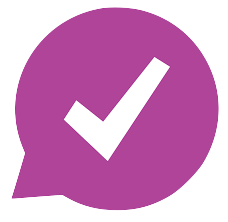
Recent Posts
- 9 Smart Ways Local Governments Use Mass Texting for Public Safety & Crowd Control
- How to Send Emergency Alerts During Network Outages or Low Connectivity
- What Is NG9-1-1? How Next-Generation 911 Will Transform Emergency
- How to Use Fire Emergency Alerts to Improve Safety Response
- Why FERPA Compliance Matters for School Emergency Notification Systems
Categories
“I am a youth minister and have spent hours in the past calling students individually to remind them of an upcoming event or to get out an urgent announcement. With DialMyCalls.com, I cut that time down to about 1 minute. I also love how I can see exactly who answered live and how long they listened so I know if they heard the whole message. DialMyCalls.com is the best website I have stumbled upon all year! Thanks!”
Central Baptist Church
Try Using DialMyCalls Right Now
Start For Free
Author
Tim Smith is the Media Manager at DialMyCalls, where he has leveraged his expertise in telecommunications, SaaS, SEO optimization, technical writing, and mass communication systems since 2011. Tim is a seasoned professional with over 12 years at DialMyCalls and 15+ years of online writing experience.
Try Using DialMyCalls Right Now
Start For Free
Recent Posts
- 9 Smart Ways Local Governments Use Mass Texting for Public Safety & Crowd Control
- How to Send Emergency Alerts During Network Outages or Low Connectivity
- What Is NG9-1-1? How Next-Generation 911 Will Transform Emergency
- How to Use Fire Emergency Alerts to Improve Safety Response
- Why FERPA Compliance Matters for School Emergency Notification Systems
Categories
“I am a youth minister and have spent hours in the past calling students individually to remind them of an upcoming event or to get out an urgent announcement. With DialMyCalls.com, I cut that time down to about 1 minute. I also love how I can see exactly who answered live and how long they listened so I know if they heard the whole message. DialMyCalls.com is the best website I have stumbled upon all year! Thanks!”
Central Baptist Church
Try Using DialMyCalls Right Now
Start For Free
